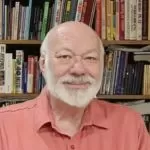60 Years with the Very Helpful FCC
This month marks the anniversary of my first experience with staff members of the FCC back in 1958. I was stationed at a U.S. Navy teleprinter relay facility on a mountaintop in North Africa. Some of us had obtained our MARS (Military Affiliated Radio Service) licenses to exchange teleprinter messages with our families back home.
To communicate verbally during a period of excellent sunspot ionospheric activity, using a rotatable beam antenna on the 20-meter American phone band, we were able, for about six hours each night, to arrange phone patches with a fellow “ham” operator in New York, to avoid the $15 per minute transatlantic cable costs. The operator would simply place a phone call to the serviceman’s loved ones for a live 8000-mile chat.
I needed a U.S. amateur operator license to operate and with the cooperation of the FCC, I was granted my first FCC amateur radio license following a couple exam tests. This was my first experience of extraordinary cooperation with the Commission that continues to this day with never the slightest problem.
On more than one occasion, I have requested the presence of an FCC regional engineer/inspector for seminars conducted at broadcaster conventions. Each request was always promptly granted.
While on the road conducting Alternative Inspections, I would frequently be confronted with a question I could not address. A simple phone call to either the regional FCC office or their offices in Washington promptly provided the information to resolve any problem or question.
On more than one occasion following my certification of a station’s compliance, a problem between a station and the FCC would develop. Such was almost always the result of a complaint filed with the FCC by a competitor seeking the forfeiture of a license, a disgruntled former employee, or a party unhappy with a station’s program resulting from a disturbing news item related to the complainant.
In every instance, once I was made aware of such issues, following a review of my inspection reports for the victim stations, I was able to satisfactorily document, admittedly some times under oath, the reality of the station’s innocence resulting in a satisfactory review of a possible fine.
The staff of the Federal Communications Commission are willing to assist any station with helpful suggestions for anyone approaching them with absolute integrity. Indeed, such has been my experience for the past 60 years.
